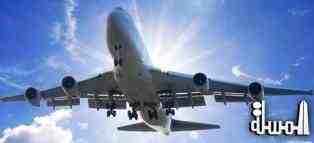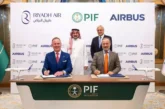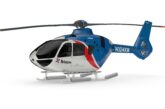
3rd World Aviation Safety Summit to discuss new aircraft tracking systems
ATP- arab tourism portal- Dubai – The 3rd annual World Aviation Safety Summit will be held in Dubai on the 16-17 March 2015. The summit is hosted by the Dubai government and Dubai Civil Aviation Authority.
The summit will gather regional and international speakers from regulatory authorities, airline operators, airport operators, aircraft manufactures, pilot associations, safety organisations and air traffic control service providers to discuss strategies and challenges required to improve aircraft safety.

The summit will discuss various issues related to aviation safety including the adoption of a performance-based standard for global tracking of commercial aircrafts to avoid disappearance accidents. More than 300 delegates from the regional and international aviation industry will also hear summit speakers examine if real-time aircraft tracking can improve aviation safety.
The topic has come under much discussion in the international aviation industry recently following the disappearance of the Malaysian Airlines flight MH370 last year, where calls to aviation investigators were made to identify the cause and solutions so a system can be developed to avoid such risks in the future.
![]() The International Air Transport Association (IATA) initiated an industry task force to develop recommendations to improve global flight tracking, which presented its conclusions to the United Nations’ International Civil Aviation Organisation (ICAO) which is due to issue formal guidelines on aircraft tracking shortly.
The International Air Transport Association (IATA) initiated an industry task force to develop recommendations to improve global flight tracking, which presented its conclusions to the United Nations’ International Civil Aviation Organisation (ICAO) which is due to issue formal guidelines on aircraft tracking shortly.
The expert task force has proposed that airlines upgrade their aircraft with real-time, global flight tracking systems in order to improve safety, evaluate their current tracking capabilities against the performance criteria and close any gaps within 12 months. The task force has also suggested the use of 4D tracking. If implemented, this regulation will require all aircraft to transmit information on their longitude, latitude, altitude and local time to permit four-dimensional tracking, which should be accurate to within at least 1 nautical mile and reported every 15 minutes — or more often in the event of an alert.
Ruben Morales, Head, Flight Operations Safety at IATA, said:
 “We at IATA have welcomed the recommendation of the ICAO’s Second High Level Safety Conference (HLSC/2) to move towards the adoption of a performance-based standard for global tracking of commercial aircraft, supported by a multi-national evaluation exercise to evaluate impact and guide implementation. We support an approach that is performance-based, not prescriptive.”
“We at IATA have welcomed the recommendation of the ICAO’s Second High Level Safety Conference (HLSC/2) to move towards the adoption of a performance-based standard for global tracking of commercial aircraft, supported by a multi-national evaluation exercise to evaluate impact and guide implementation. We support an approach that is performance-based, not prescriptive.”
Airlines have argued that implementing an aircraft location tracking system within a year will be challenging. They contend that they are open to the idea of upgrading their tracking systems to ensure more safety for passengers and crew but the 12-month deadline is unrealistic. Establishing the necessary systems to track planes across their entire potential range will require substantial time and monetary investment.
 Nils Olof Svan, SVP, Strategy at Dubai Air Navigation Services (DANS), summit speaker and member of Advisory Board, said:
Nils Olof Svan, SVP, Strategy at Dubai Air Navigation Services (DANS), summit speaker and member of Advisory Board, said:
“Aviation safety is a critical industry issue, fundamental to ensuring air transport continues to play a major role in driving sustainable economic and social development, not just here in Dubai but all over the world. Effective tracking technology that allows us to know exactly where an aircraft disappeared will facilitate search-and-rescue operations and significantly reduce investigation costs for airlines.”
.jpg) Held under the Patronage of His Highness Sheikh Ahmed bin Saeed Al Maktoum, President of Dubai Civil Aviation Authority, Chairman of Dubai Airports, Chairman and Chief Executive Officer of The Emirates Group, the Summit will be hosted by the Dubai Civil Aviation Authority and organised by the Streamline Marketing Group.
Held under the Patronage of His Highness Sheikh Ahmed bin Saeed Al Maktoum, President of Dubai Civil Aviation Authority, Chairman of Dubai Airports, Chairman and Chief Executive Officer of The Emirates Group, the Summit will be hosted by the Dubai Civil Aviation Authority and organised by the Streamline Marketing Group.
The summit, running from 16-17 March 2015 in Dubai, is expected to attract more than 300 regional and international stakeholders from across the industry to explore a range of aviation safety topics at panel discussions, strategy sessions and group discussions. Experts will also share regional case studies on how the challenges of integrating and implementing new and existing safety procedures can be overcome.








